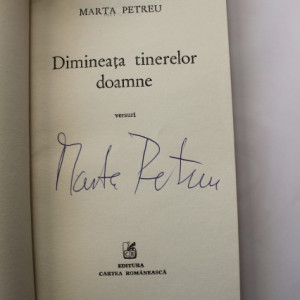
The intention of this article is to create a very specific picture within the historiography of Romania’s fascism as well as its Holocaust, through the lenses of a historical figure who turned out to be one of the main catalysts for awareness of the Shoah in post-communist Romanian culture and society, namely that of Mihail Sebastian (born Iosef Hechter) and three sources written by him: the first one being his novel For Two Thousand Years / De două mii de ani (1934), the second a follow-up journalistic essay to his novel, entitled How I Became a Hooligan / Cum am devenit huligan (1935) and the third, his posthumously released Journal, 1935-1944, originally unintended for publishing. Then and then only, maybe finally and certainly more comprehensively, documents from Romania offered opportunities for studying a wartime regime that was second only to Germany in the killing of the Jews. But nonetheless I had to write this as an expression of me appreciating her work and I should have written a longer review but I have had a flute of champagne because it is the birthday of my brother and the small amount of alcohol that I had is chipping at my coherence.Both historiography and history of the Romanian Shoah are a matter which could be tackled without obstruction only after the fall of Communism (from the last decade of the past century on) with the accretion of documentary collection and the opening of archives that began in the 1990s. The book was written in Romanian, which greatly limits its readership.

I wrote this review in English because I wanted to. Having the quotes in a full format (not just one line, but a paragraph of five-ten line) it gave me more autonomy into the text, almost as if I were invited to draw my own conclusions and see if I agree with hers. I began to understand the logic behind the framing. The first time I have seen this method, I have not appreciated it. There are chunks of texts taken from her sources between which she writes her own words. Father came to be the figure of Romania chocked by the tentacles of extremist thought, after the son escaped to the freed West that promised a society not as blinded by ideology.

She talks about the relationship he had had with his father and the numerous depictions and appearances of the pattern figure in his plays. She brings to light the years Ionescu had spent in Romania and wrote in Romanian. The book written by Marta Petreu is a well composed analysis that goes through the background of Ionesco`s formation.

It talked about Eugène Ionesco, the one that reached fame with his French plays that were inspired by the dark years of the extremist ideologies (right or left) that plagued Europe at the beginning of the 20th century (and they are not quite gone, to this day).


 0 kommentar(er)
0 kommentar(er)
